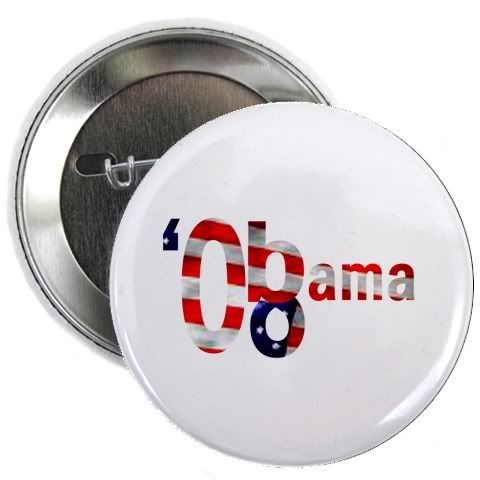Wednesday, March 30, 2005
pWned
And then there's the bankruptcy bill currently wending its way through Congress. Although, were it truthfully named, it would be called the Anti-bankruptcy bill, or maybe the Fuck the Middle and Lower Classes bill.
In case you've been living under a rock, the short version of the bill is that it will all but eliminate people's ability to erase credit card debt or medical bills by filing bankruptcy. Note two tiny little details. A majority of bankruptcies are due to unforeseen (and uninsured) major medical calamities, and the insurance and credit card industries are major, major political donors.
Yes, that's right -- you're all about to be sold to these trillion dollar, fat-cat industries. Congress is in the process of protecting them from you.
I long ago found a simple solution to the problem and, thanks to banks turning ATM cards into debit cards, it's not as difficult as it once was. Basically, about ten years ago, I got rid of all the credit cards. Stopped using them, paid cash. The only exceptions during that time were specific -- one medical only credit card for which I applied when my dog was very ill, the other for a major electronics chain when a bit of major electronics needed sudden replacement. The former card was long ago paid off and the latter is close to it. Then again, I've made it a policy to pay at least ten percent of the outstanding balance every time. Funny how fast the outstanding amount drops in that case -- and not at all funny how slowly it would have declined had I just sent in the minimum monthly payment, something like fifteen dollars.
But... too many people, especially those just starting out, fall into the trap of credit. As long as they pay the paltry minimum every month, they think they'll be okay. But there's a built-in, nasty trap to it. The minimum is never enough to actually pay of the balance plus interest, and the interest rates are, to be charitable about it, blatantly usurious. If it weren't for the monetary influence of the credit card industry, the typical 18-20% rates would probably be illegal.
If I were writing the law, I'd make a few changes, starting with the interest rate thing. For banks issuing credit cards, their credit interest rate would be tied to whatever percentage rate they're paying out on their most basic checking account. Paying that whopping 1.5% on Joe Blow's $221 balance? Then the most you can charge on credit card balanes is 3.5%. Period. For non-bank or non-lending issuers, the maximum interest rate is prime plus two.
The part I like about it is the wonderful dilemma it would cause for the banks. "Hm. We'd love to charge more on our credit cards, but then we'd have to pay people more for the right to borrow their money." (Make no mistake there; that's exactly what banks do. They borrow your money and use it to make money for themselves. The key for them is volume, and you can be damn sure they're siphoning off more than enough of what should be yours before they give you that "generous" percent and a half. Sigh. I remember the days when a typical bank interest rate was 7%. Not that I had any money in the bank then...)
But I do digress...
Let's look at a typical minimum credit card scenario -- a $600 credit line, 18% annual interest and a 3% of balance or $10 minimum monthly payment. Paying just the minimum, it will take seven years to pay off the balance and cost nearly a thousand dollars to do so. That may not seem like such a big deal, but factor in "late fees", which credit card companies slap on faster than you can say "Charge it," and you can wind up in a real hole. Typical late fees are $29 a shot. Compare that to the minimum payment, and you can see that one of these puppies can put you back three months. Forget to mail that check on time just once a year, and suddenly it'll take you ten years to pay off and cost you over $1,500. And god forbid you should actually miss a payment here or there.
Now, a typical American family's current credit card debt is $8,400. Brace yourselves for this one -- plug that amount into the scenario above, 18% APR, pay the minimum every month without ever being late. Begin on April 1, 2005, and you won't be done paying until December 2026, at a total cost of $16,598.88.
Miss a few payments, incur a few late fees, it's easy to see how these amounts can add up to bankrupting levels. In the scenario above, the beginning minimum payment is $250.00, which is in car loan land. The difference is the interest rate, which is much lower, which allows you to pay off $15-20,000 at a fixed interest rate over a few years.
And Congress has it entirely backwards, once again forgetting that they work for us, the People, and not the gigantic mindless corporations that engage in the pasttime of raping us, the People. If they really wanted to solve the bankruptcy problem, they'd castrate the Credit Card companies and limit the interest rates they could charge; they'd figure out how to get universal health care for all Americans.
Instead though, and as always, they're kissing up to their real masters and trying to treat the symptom instead of the cause.
In case you've been living under a rock, the short version of the bill is that it will all but eliminate people's ability to erase credit card debt or medical bills by filing bankruptcy. Note two tiny little details. A majority of bankruptcies are due to unforeseen (and uninsured) major medical calamities, and the insurance and credit card industries are major, major political donors.
Yes, that's right -- you're all about to be sold to these trillion dollar, fat-cat industries. Congress is in the process of protecting them from you.
I long ago found a simple solution to the problem and, thanks to banks turning ATM cards into debit cards, it's not as difficult as it once was. Basically, about ten years ago, I got rid of all the credit cards. Stopped using them, paid cash. The only exceptions during that time were specific -- one medical only credit card for which I applied when my dog was very ill, the other for a major electronics chain when a bit of major electronics needed sudden replacement. The former card was long ago paid off and the latter is close to it. Then again, I've made it a policy to pay at least ten percent of the outstanding balance every time. Funny how fast the outstanding amount drops in that case -- and not at all funny how slowly it would have declined had I just sent in the minimum monthly payment, something like fifteen dollars.
But... too many people, especially those just starting out, fall into the trap of credit. As long as they pay the paltry minimum every month, they think they'll be okay. But there's a built-in, nasty trap to it. The minimum is never enough to actually pay of the balance plus interest, and the interest rates are, to be charitable about it, blatantly usurious. If it weren't for the monetary influence of the credit card industry, the typical 18-20% rates would probably be illegal.
If I were writing the law, I'd make a few changes, starting with the interest rate thing. For banks issuing credit cards, their credit interest rate would be tied to whatever percentage rate they're paying out on their most basic checking account. Paying that whopping 1.5% on Joe Blow's $221 balance? Then the most you can charge on credit card balanes is 3.5%. Period. For non-bank or non-lending issuers, the maximum interest rate is prime plus two.
The part I like about it is the wonderful dilemma it would cause for the banks. "Hm. We'd love to charge more on our credit cards, but then we'd have to pay people more for the right to borrow their money." (Make no mistake there; that's exactly what banks do. They borrow your money and use it to make money for themselves. The key for them is volume, and you can be damn sure they're siphoning off more than enough of what should be yours before they give you that "generous" percent and a half. Sigh. I remember the days when a typical bank interest rate was 7%. Not that I had any money in the bank then...)
But I do digress...
Let's look at a typical minimum credit card scenario -- a $600 credit line, 18% annual interest and a 3% of balance or $10 minimum monthly payment. Paying just the minimum, it will take seven years to pay off the balance and cost nearly a thousand dollars to do so. That may not seem like such a big deal, but factor in "late fees", which credit card companies slap on faster than you can say "Charge it," and you can wind up in a real hole. Typical late fees are $29 a shot. Compare that to the minimum payment, and you can see that one of these puppies can put you back three months. Forget to mail that check on time just once a year, and suddenly it'll take you ten years to pay off and cost you over $1,500. And god forbid you should actually miss a payment here or there.
Now, a typical American family's current credit card debt is $8,400. Brace yourselves for this one -- plug that amount into the scenario above, 18% APR, pay the minimum every month without ever being late. Begin on April 1, 2005, and you won't be done paying until December 2026, at a total cost of $16,598.88.
Miss a few payments, incur a few late fees, it's easy to see how these amounts can add up to bankrupting levels. In the scenario above, the beginning minimum payment is $250.00, which is in car loan land. The difference is the interest rate, which is much lower, which allows you to pay off $15-20,000 at a fixed interest rate over a few years.
And Congress has it entirely backwards, once again forgetting that they work for us, the People, and not the gigantic mindless corporations that engage in the pasttime of raping us, the People. If they really wanted to solve the bankruptcy problem, they'd castrate the Credit Card companies and limit the interest rates they could charge; they'd figure out how to get universal health care for all Americans.
Instead though, and as always, they're kissing up to their real masters and trying to treat the symptom instead of the cause.
Comments:
Post a Comment

